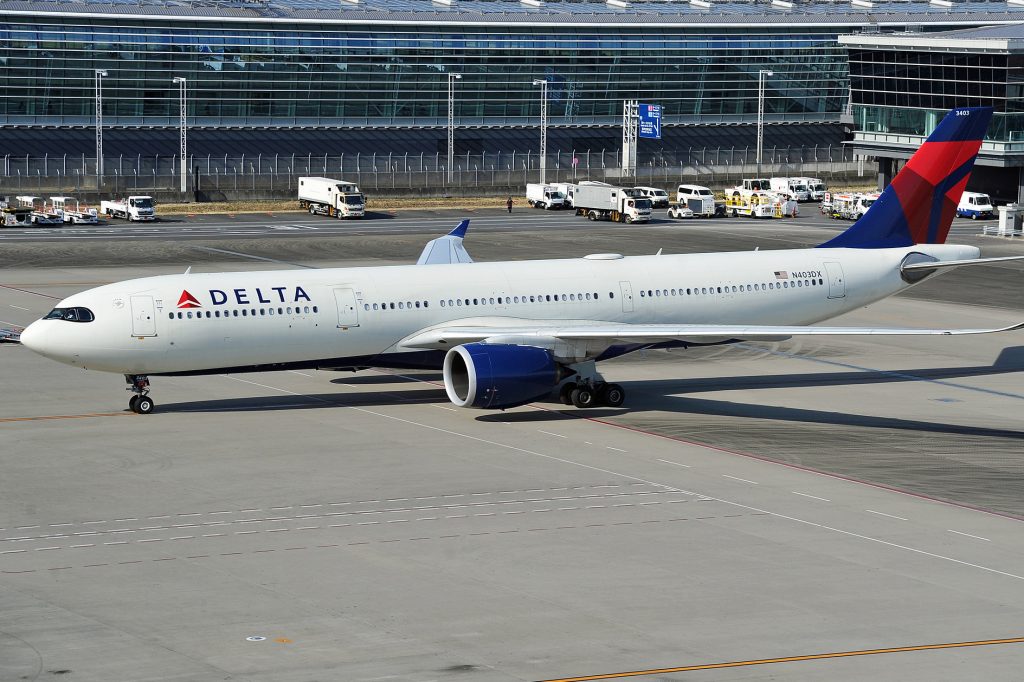
Skift Take
Delta, which has consistently been one of the most profitable U.S. airlines, slightly underperformed in the second quarter, partly due to an oversupply of domestic seats. That could signal trouble for domestic carriers this summer.
Despite a record number of people traveling this summer, Delta â one of the most profitable U.S. airlines â fell short of Wall Street expectations.
The carrier reported record revenues for the second quarter but profits fell 29%, mostly due to an overcapacity of seats and higher fuel costs. Delta president Glen Hauenstein said during a call with analysts Thursday that domestic seat growth in the summer has outpaced demand, affecting main cabin revenues.
Another thorn for Delta is the Olympics, which is set to take place in Paris in two weeks. Historically, the Olympics havenât drawn more traffic for airlines since business travel to the host region typically decreases during the games. And Delta is no different â Hauenstein said the airline expects to take a $100 million hit once the games begin in Paris.
Despite the Olympics, Hauenstein said demand for Europe was still strong.
While the second quarter is typically one of the best for airlines, the industry is dealing with a slew of issues that have been eating into its profits. Beyond a surplus of domestic seats and high fuel costs, airlines are also contending with higher labor costs, along with delivery delays from Airbus and Boeing.
Delta is the first to report airline earnings and its slight underperformance could signal that there may be trouble ahead for the more domestic-focused airlines.
International travel, premium seating and lucrative frequent flyer programs have so far been able to shield carriers like Delta and United from industry headwinds.
Premium and Loyalty Program Revenues Make Up Over Half of Delta’s Revenues
Deltaâs strategy to cater to premium travelers has worked so far. Revenues from premium cabins were $5.6 billion, up 10% compared to the same time last year and Hauenstein said the carrier plans to add more premium seating to its fleet.
âPremium continued to outperform and differentiate our results,â he said on the call.
Domestic revenues grew 5% and international was up 4%, compared to last year. Hauenstein said he expected capacity growth at 5% to 6% in September, down from the 8% growth Delta had in the second quarter. Hauenstein also said the carrier expects transatlantic revenues to improve in the fall.
Delta SkyMiles is also growing. Revenues for the loyalty program were up 8% and the remuneration the airline received from its deal with American Express was $1.9 billion, a 9% increase from last year.
A Lopsided Industry
In recent years, the two most profitable U.S. airlines have been Delta and United. Low-cost carriers like Frontier and Spirit, on the other hand, have struggled due to a variety of reasons ranging from soft demand for low-cost products to Pratt & Whitney engine issues.
Southwest is also now considering adding a premium cabin after facing declining revenues and pressure from an activist investor.
Delta CEO Ed Bastian said on the call that he believed the industry has fundamentally changed.
âValue in this industry for many years was defined as having the lowest fare in the market. That’s changed,â Bastian said. âThat’s changed dramatically. The experience economy that we’ve seen that’s taken hold, that’s driven the high demand set that we are seeing.â
He added that he thought the carriers that canât âreturn its cost of capitalâ in the face of many pressures affecting the industry would ânot be given the opportunity to continue to run the business models they have.â
Airlines Sector Stock Index Performance Year-to-Date
What am I looking at? The performance of airline sector stocks within the ST200. The index includes companies publicly traded across global markets including network carriers, low-cost carriers, and other related companies.
The Skift Travel 200 (ST200) combines the financial performance of nearly 200 travel companies worth more than a trillion dollars into a single number. See more airlines sector financial performance.
Read the full methodology behind the Skift Travel 200.

